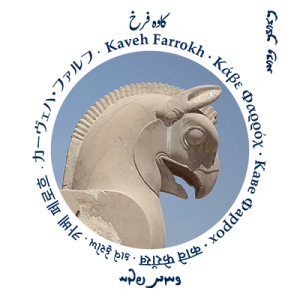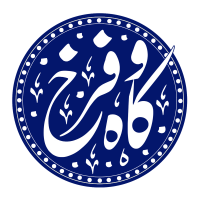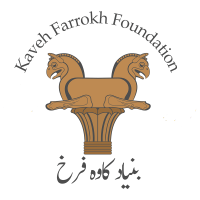The article below by the Defense & Foreign Affairs journal makes reference to the role of pan-Turkism in Turkey and the challenges this poses for iran. Here is the quote (for more please read the entire article following this quote):
Turkey is slowly and skillfully following a path of pan-Turkism/Ottomanism …and this new messianic pan-Turkist/Ottomanist set of goals will soon bring Turkey into conflict with Iran, which has Turkic speaking (Azari) populations in the North.
==================================================================
Defense & Foreign Affairs -Special Analysis
Founded in 1972. Formerly Defense & Foreign Affairs Daily
Volume XXVIII, No. 69 Sunday, October 31, 2010
© 2010 Global Information System/ISSA.
Special Report: The Northern Tier Powers of Iran and Turkey, and the Rapid Rise of Political Islam, Expose a Lack of Western Understanding and Strategies
Special Report
The Northern Tier Powers of Iran and Turkey, and the Rapid Rise of Political Islam, Expose a Lack of Western Understanding and Strategies
Analysis. By Dr Assad Homayoun*. It is now clear that the West has no coherent strategies to cope with Iran and Turkey, the two important powers in the greater Middle East.
Iran and Turkey dominate this zone of the greater Middle East, which extends from the Caucasus and Central Asia to the Indian Ocean, and from the Pamir Mountains to the Mediterranean. It is a region which contains perhaps 70 percent of the known world oil and gas energy reserves1, is a major center of religious and ethnic rivalry; and is home tothe Arab-Israeli dispute, international terrorism, and the proliferation of weapons of mass destruction.
If the West is to cope with this reality, then it needs to better understand both of these powers, historically, and to understand the nature of the force which essentially drives them: political Islam.
Iran and the Ottoman Turks experienced conflict and occasional wars for almost 250 years, but there has been no serious war between Iran and Turkey since 1747 (the battle of Kars). Border disputes, however, have persisted between them.
After World War I, the Ottoman Empire disintegrated and the Turkish Republic came into existence in 1922. When Reza Khan came to power in Iran and founded the Pahlavi dynasty in 1925, and Mustafa Kemal Atatürk came to power in Turkey, relations and cooperation between the two countries improved and continues to the present day. During the Cold War, both were allies of the US and formed a line — or, indeed, a “Northern Tier” — against the USSR. In 1953, US Secretary of State John Foster Dulles, during his trip to the Middle East, for the first time referred to the “Northern Tier” as a political/military concept aimed at a collective security region on the southern borders of the Soviet Union.
The situation changed, however, after the disintegration of the Soviet Union. Now, Iran and Turkey keep their distance from US and are close to Russia and the People’s Republic of China (PRC). Iran changed its direction in 1979 to the detriment of US interests, and changed the balance of power in the region against the US and the West.
This change also marked the beginning of the rise of political Islam and modern jihadist movement, often exemplified by international terrorism, and mostly as a result of the growing weakness and strategic miscalculations of several US administrations.
Iranian history and Persian culture have been exemplified by tolerance and religious freedom, but the theocratic administration which emerged in 1979 in Iran was an aberration; it not only propagates radical Islam, but it also attempts to destroy and extirpate the roots of Persian history, civilization, and culture which, for three millennia, have been strategic reserve and guardian of Iran. The theocratic administration continues to obliterate memories and appreciation of Iran’s past glories, and has consistently held a policy of indoctrinating students in schools and universities. Anti-democratic and anti-female behavior has become emphasized by the clerical leadership, as has enmity towards recognition of Iran’s non-Muslim past.
Ideological opposition to United States’ policy in the Middle East and toward Israel is fundamental. Clerical Iranian policies of support for militant groups, alliance with radical leaders, and denial of the Jewish Holocaust will not change since the clerical leaders are, by definition, religiously dogmatic, apocalyptic, and strategic in their approach to building their power base.
The key to change in Iran is not negotiation or intervention by external powers with the clerical leadership. International sanctions have been important and have great impact, but they may not be decisive. On the other hand, a war option — to change the Iranian political status quo — would merely catapult a volcanic region into chaos and balkanization. Clearly, a change of governance in Iran would transform the political landscape of the Middle East, and this is basically only feasible through the action of the Iranian people. That is not the focus of this paper; I have written extensively about this subject in the past and it needs to be discussed again separately.
At present, it is important to stress that Iran and Turkey are the two most important players in the Greater Middle East, a region which has become — in many senses —the “center of political gravity” of the world.
Iran and Turkey both have common interests in the region, even though they are rivals and compete with each other and have differences. Their common interests include the fact that:
1. Both countries follow Islamic Ideology, whereas Turkey is moderate and Iran is radical, but the situation in Turkey will not continue on the same path which it trod for the last three-quarters of the 20th Century. Turkey will have to go back to either secular Kemalism or move further toward Islam since Islam and democracy cannot concur with each other, despite the claims in this transitional period that Turkey exemplifies “democratic Islam”. If there is such a path, then it is more attuned to the careful steps which the Kingdom of Morocco is taking.
2. Both countries had very close strategic relations with US. Iran, of course, has postured itself as the enemy of US since 1979, and Turkey is gradually changing its direction, as it did with its policy towards Israel in mid-2010,and the establishment in 2008 of its partnership with Russia.
3. Both countries are working together and are becoming strategic partners.
4. Trade and economic relations between Iran and Turkey have been improving tremendously, in spite of US sanctions
5. Both have common interests with Syria to check the Kurdish movement and prevent the creation of an independent Kurdish state. There are more than 20-million Kurds in Turkey and around eight-million in Iran.
6. Iran and Turkey both have interests in Iraq and in the stability (or otherwise) of Iraq.
Rivalries:
1. While Iran and Turkey have predominantly Muslim populations, Iran is Shia and Turkey is Sunni. We need to remember that the two empires of Safavid Iran and the Ottoman Turks fought ideological wars for 250 years.
2. Turkey is slowly and skillfully following a path of pan-Turkism/Ottomanism— even though pan-Turkism is, as most in modern Turkey forget, diametrically opposed to Ottomanism as it was originally expressed by Atatürk — and this new messianic pan-Turkist/Ottomanist set of goals will soon bring Turkey into conflict with Iran, which has Turkic speaking (Azari) populations in the North.
3. Both claim leadership in the region.
4. Turkey is concerned at the prospect of a military nuclear Iran which, with its resources and history and strong cultural identity, would at least attempt to be “lord paramount” of the region. For this reason alone, Turkey has begun steps to build its own nuclear energy and military nuclear options.
5. Iran and Turkey compete in Central Asia and the Caucasus. This competition started after the downfall of the Soviet empire.
6. Turkey is a member of NATO, whereas the theocracy of Iran and NATO are bêtes noires.
In a nutshell, in spite of differences, there are compatibilities in ideology, religion, economy, and geopolitics which bring Turkey and Iran closer.
This cooperation will continue with the present leaderships of the two countries, unless there is change in policy of Iran or Turkey.
Stephen Kinzer, who, in his new informative book, Reset, espouses a future partnership among US, Turkey, and Iran, misses an important point.2 Certainly, as he said, the geopolitical interests of Iran and Turkey in many respects are in accord with US interests in the Middle East, but without change in Iran and a return of Turkey to secular Kemalism and real democracy, it will be difficult for Iran and Turkey (which is gradually tilting toward radical Islamism) to rebuild their relationships with the US.
Stability, in fact, does not mean anything in the Middle East. Democracy in the region similarly either does not exist or is artificial and ephemeral. Where-ever the Muslim umma is, there are the polity of Islam and the abode of Islam. In the Islamic theory of international relations, dar-al-Islam is not defined by permanent territorial frontiers. Islam means submission without question.
Islam does not believe in equality between men and women. In Islam there is no right, but only duty for the people. The idea of democracy is alien to the mindset of Islam, which does not provide for the division of power or popular sovereignty. The goal of political Islam — Islamism —is to impose Islamic law or sharia on the whole world. That is why many Muslim (non-Islamist) thinkers believe that reform is necessary for Islam to exist alongside democracy, or popular government, in the same way that Christianity reformed to co-exist with secular government.
Contrary to what Mr Kinzer suggests, the governments of Iran and Turkey are Islamist and act against US interests. They are trying, directly or indirectly, to proselytize and expand their political and religious influence in the region and elsewhere. If they bring Egypt and Saudi Arabia to their line, that could happen sooner or later. They are already having an historical impact on all Muslim states, and world politics. It is possible that they could form a United Islamic bloc like NATO, and, with a strategic alliance with the PRC — which is in the making — they could well have a great impact on global affairs and change the balance of power against the US and NATO.
The real problem in the Northern Tier and the greater Middle East is that radical Islam is rising rapidly due to the lack of vision and grand strategy of the US, and because of the weakness of Europe. According to Eurasianet.org, even in the Central Asian republics the influence of Islam is growing rapidly. For example, in Tajikistan, instead of parents choosing Persian names for their children — names which mostly came from Shahname Ferdowsi — such as Jamshid, and Freidoon, they are instead choosing Arabic names. This represents a break with Tajik/Persian culture, identity, and the cultural past of the area.
If nothing dramatic happens — by which I mean major war (and that possibility is very high) — political Islam will definitely advance, and, in the mid-21st Century, Islam could be in control of Europe. This would lead inevitably to clashes with non-Islamic states and communities. We are living in the most unstable period of human history, with ever-increasing cancerous problems, seemingly without solutions. It is interesting to remember the medicine which Hippocrates, the Greek physician, recommended against the cancer: “What medicine cannot heal, steel heals, what steel does not heal, fire does”.
Political Islam, resorting to asymmetrical warfare and terrorism, has already intimidated a tired and perplexed Europe and has frightened the US. Even Queen Elizabeth II, during her visit to Turkey, through which she was wearing a headscarf, listened to a recitation of the Quran in the Green Mosque in Istanbul. It seems that the US and the democratic West do not have a sound strategy to deal with political Islam. The West appears to have no strategy or will to prevent a shifting of power, or to guard Western culture, civilization, and democracy.
On the other hand, there are many in the Muslim world who believe that Islam needs to be adjusted to new realities of life in a modern world, and, indeed, to be liberated from literalist ayatollahs and imams. Much of the Muslim world is intimidated by the ferocity of the Islamists and does not speak. Indeed, Islam has been hijacked by radical Muslims who are ready to be killed for their ideology. I am of the opinion that going against a religion — especially a popular one — is the height of folly, but criticizing and fighting with extremism is necessary for the cause of peace.
For classical Muslim thinkers and philosophers who have studied Aristotle and Plato it is not difficult to interpret Islam and adjust it to modern times and a new life. But the present interpretation of Islam by dogmatic and even fanatical ayatollahs and imams has given a new and macabre face to Islam. I should like to emphasize that this engine of political Islam and jihad against infidels was first ignited by “Ayatollah” Ruhollah Khomeini in 1979, and continues at an ever-faster pace. On January 14, 1980, more than 120 Pakistani Army officers on a pilgrimage to religious city of Qum met with Khomeini who said to them: “We are at war against infidels. Take this message with you. I ask all Islamic nations, all Islamic armies to join us. There are many enemies to be killed. Jihad must triumph”.
After the Iranian revolution and the establishment of the Shia system of Velayat-e-Faqih, the Wahhabi/salafi religious leaders — in order to not be left behind — introduced a Sunni version of radical Islam, re-stressing the export of the Quran, financing for madrasas, and building of new mosques worldwide. That race between Shia and Wahhabist/salafist proselytization continues, faster and faster. This competition led to the rise of al-Qaida, which attacked two centers of economic and military power of the United States on September 11, 2001, and created the present incarnation of international terrorism. Currently, the two important branches of Islam — Sunni and Shi’a — despite of their differences, effectively undermine the democratic West. The West, instead of using the differences between Shi’ism and Sunnism, has lost its nerve and has been unable to devise a sound strategy to face political Islam.
In the Seventh Century, a small Muslim army defeated two superpowers of the time, the Persian and Roman Empires. History repeats itself, since it is made by humans, and human nature has not changed in the past several thousand years. It will not change. It would take a hero with sense of history to change the equation. I see no sign of such a hero. As Niccolò Machiavelli said: “if you wish to see what is to be, you must consider what has been: all things of this world in every era have their counterparts an ancient times.”
* The Author: Dr Assad Homayoun is a former Iranian diplomat, a senior fellow of International Strategic Studies Association, and President of Azadegan Foundation for Democratic Change in Iran.
Footnotes:
1. This generalized figure is changing, particularly as new gas deposits, including those in shale beds, are discovered and become feasible for exploitation around the world, and as other energy forms begin to emerge, such as thorium. But even apart from the energy contained within the “Greater Middle East”, the Northern Tier is a key conduit for the transit of energy out of Central Asia and the Caspian basin, and the trade in other trade goods as the new Silk Route begins to emerge between Asia and Europe.
2. Kinzer, Stephen: Reset: Iran, Turkey, and America’s Future.New York, 2010: Times Books. Henry Holt and Company.



